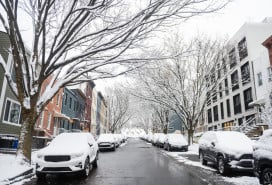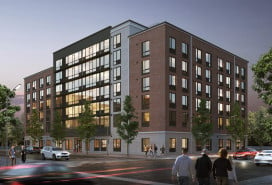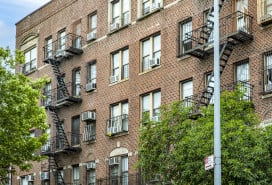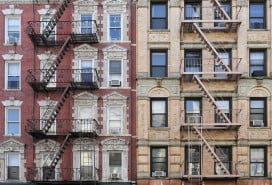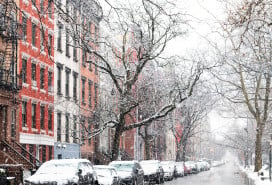A single guy reveals why he took the co-op plunge--and how he basically lives for free

I'm a single guy in my late twenties who recently crossed coasts to live in the best city on earth. Having no doubts in my assessment of NYC, I immediately began the process of putting a $200-300K salary and $100K down payment to work finding an apartment.
Over the four months it took from start to finish, I kept detailed records and applied my analytical background towards developing a realistic picture of the costs and benefits. My final rent versus buy analysis I share with you in the hope that it clarifies your decision-making process.
I bought a 525 square foot one-bedroom co-op in a Chelsea elevator building for $455,000, putting 20% down plus about $5,000 in closing costs (roughly equivalent to a rental broker fee if I had decided to rent instead of buy). I took out a 30-year fixed mortgage at 4%, which works out to $1,738 per month. Tack on my co-op's $1,112 monthly maintenance charges, and my monthly expenses rise to $2,850 per month.
But $2,850 is my out-of-pocket expense. Taking into account tax deductions, my actual (net) cost is actually just a little over half that. And if you are optimistic, as I am, that NYC property values will increase at least 3.5% a year, I'm actually living for free.
Here's the deal:
- Fifty-three percent of my $1,112/month maintenance payment is tax deductible. If we assume, for this article, that my taxes are a flat 35%, I'll get $2,475 back via tax deductions at the end of the year. The building itself also has a tax credit that cuts one maintenance payment roughly in half each year, effectively knocking an additional $40 off the price each month. This puts the true monthly cost of the maintenance at $866 per month.
- Approximately $530 of my monthly $1,738 mortgage payment is applied to principal and $1,207 to interest, and all of the interest is tax deductible. Let's break this down a bit:
- The $530 I pay towards principal each month is pure profit to me upon sale of the unit. If I were to sell the apartment the very next day after my first mortgage payment for the same price, I'd get that $530 back (ignoring, of course, the many wonderful fees--like a broker's fee--that go along with selling). This means that it's more accurate, from my perspective, to think of the $530 I pay towards the mortgage balance as an investment, not a part of my housing costs.
- On the interest side, just as with some of the maintenance, I can subtract 35% of $1,207 per month from whatever taxes I owe at the end of the year, effectively a $422/month deduction. Taken together, these benefits knock my mortgage payment down to an effective $785 per month. Wow, but true.
- Bringing it all together, the net effective $866 per month of maintenance and $785 of mortgage amounts to a grand total of...$1,650. That's right, $1,650 per month to live in a one-bedroom apartment in the heart of Chelsea, where median rent for a one-bedroom right now is $3,825, according to StreetEasy.com.
But wait, there's more. In my view, there is every reason to expect that rents in this city will continue to trend upward over the next three decades. My mortgage, however, will be locked in at $1,738 (although it should be noted that the maintenance portion will likely increase).
Better yet, each month the split between principal payment and interest shifts towards principal (by about $2 per month) as the loan is paid down, swapping 35% tax deduction dollars into 100% 'investment' dollars.
Morever, all of these calculations assume the price of my property stays flat--which is, hopefully, unlikely! Any increase in price is pure cash in my pocket when I sell, (minus those pesky transactional costs of course).
Bottom line: If I assume 3.5% average increase per anum in Chelsea properties and sell after 5 years (and according to the Miller Samuel decade report, median prices for Chelsea one-bedroom co-ops have, in fact, appreciated 4.02% per year from 2002 to 2011), I will have made enough profit on the sale to almost cover all of my effective monthly payments--in other words, I will live in the apartment for free.
What does all this mean for you? Exactly what I tell all my friends. If you have good credit, love NYC, and can swing a down payment with higher upfront cash outlay each month, now is a fantastic time to buy vs rent.
Related:
Don't even think about buying a new condo until you read this
Unraveling NY real estate spin--one white lie at a time
To pass your co-op board interview, read this first
16 things I wish I knew before buying this place
A NYC real estate lawyer reveals the 14 biggest surprises for first-time buyers (sponsored)
What I wish I'd known before buying
Confessions of a preconstruction buyer
The 7 worst places to live in a building
Your next place: 9 questions that separate the New Yorkers from the rookie



